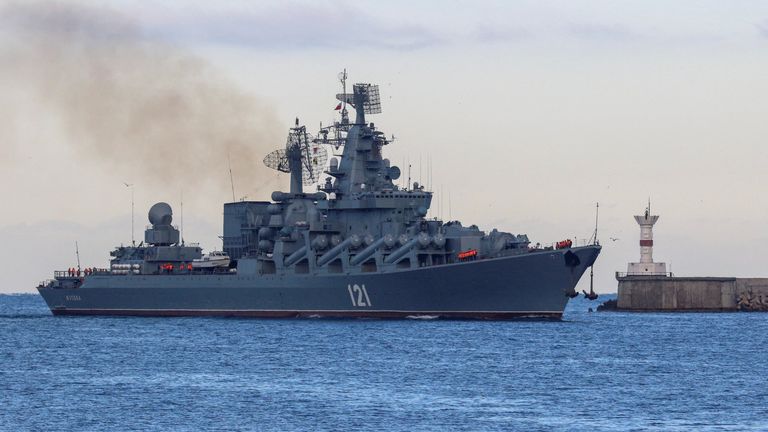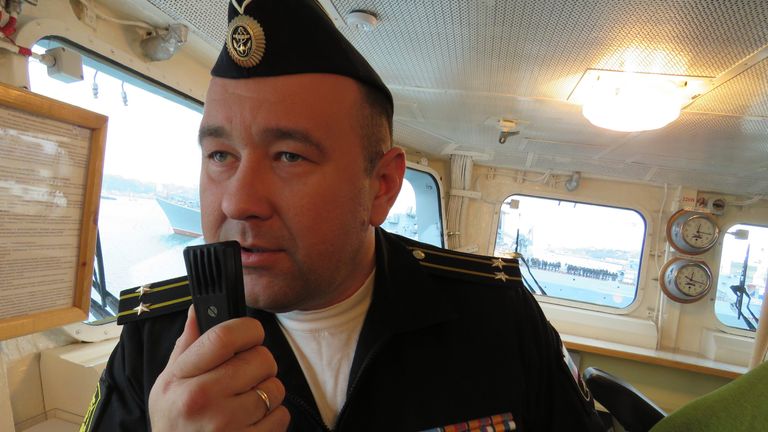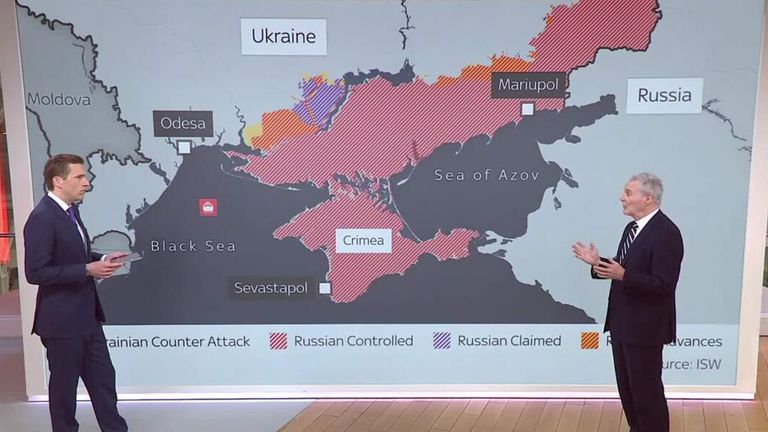Crew members who survived the sinking of the Moskva missile cruiser have met the head of Russia’s navy, it has been claimed.
Pictures released by the country’s defence ministry appear to show sailors coming face to face with Admiral Nikolai Yevmenov in the Crimean city of Sevastopol.
According to a statement, the commander-in-chief told the crew that they will continue to serve in the navy.
Ukraine war latest: Putin ‘thinks Russia is winning’
In a 26-second video, Mr Yevmenov and two other officers are seen standing in front of dozens of soldiers on a parade ground – but it is unclear when the meeting took place.
Moscow has confirmed that the Moskva sank after an ammunition explosion late on Wednesday night – and that it happened while the missile cruiser was being towed to port in rough seas.
Ukraine said it hit the vessel – the flagship of Russia’s Black Sea fleet – with missiles after reportedly using a drone to distract its radar. The US later said it believed the Moskva was hit by two Ukrainian Neptune anti-ship missiles.
While Russia has said all 500 crew on board were rescued following the explosion, Ukrainian officials have claimed that there were some fatalities.
Captain Anton Kuprin was said to be among those killed, but no evidence has been provided to corroborate this.
The Pentagon believes there were Russian casualties, although the exact number remains unclear at this stage.
It is not yet known why the Moskva’s air defence systems did not kick in – but the missiles may have come at a high angle that evaded them, or a drone may have distracted them.
Maintenance problems may also be a possibility – and the air defence systems may not have been turned on.
The Moskva first entered service with the Soviet navy in 1983.
Defence and security analyst Michael Clarke said that while the loss of the Moskva doesn’t rob the Russian navy of much capability, it is certainly a large blow to its prestige.
He wrote: “The cruiser had been acting as the control centre for the 30 or so vessels the Russians have got in the Black Sea.
“Losing the Moskva flagship is a massive PR blow for the Kremlin – the Russians haven’t lost their flagship since the Russo-Japanese war of 1904.”
Clarke believes that the sinking of the Moskva also means that any Russian attack on the crucial port city of Odesa will now be harder for Vladimir Putin’s forces to achieve.




